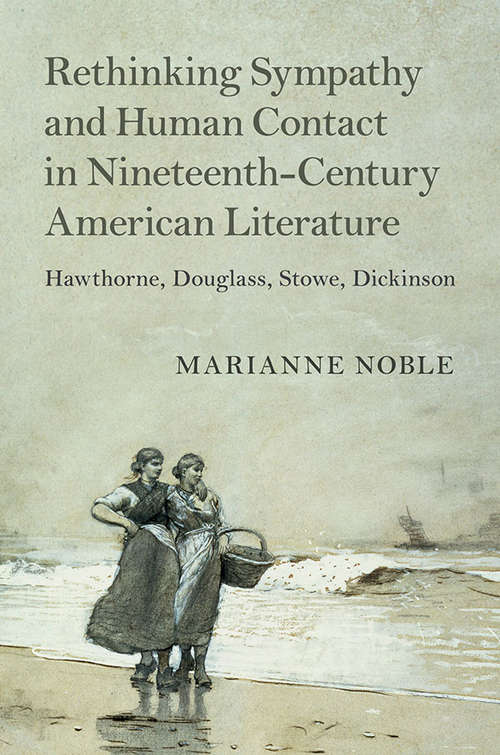Rethinking Sympathy and Human Contact in Nineteenth-Century American Literature: Hawthorne, Douglass, Stowe, Dickinson (Cambridge Studies in American Literature and Culture #182)
By:
Sign Up Now!
Already a Member? Log In
You must be logged into Bookshare to access this title.
Learn about membership options,
or view our freely available titles.
- Synopsis
- In accessible and impassioned discussions of literature and philosophy, this book reveals a surprising approach to the intractable problem of human contact. Nathaniel Hawthorne, Frederick Douglass, Harriet Beecher Stowe, and Emily Dickinson rethought the nature of human contact, turning away from transcendentalist approaches and towards sympathetic ones. Their second and third works portray social masks as insufficient, not deceptive, and thus human contact requires not violent striking through the mask but benevolent skepticism towards persons. They imagine that people feel real in a real world with real others when they care for others for the other's sake and when they make caring relationships the cornerstone of their own being. Grounded in philosophies of sympathy - including Adam Smith and J. G. Herder - and relational psychology - Winnicott and Benjamin - Rethinking Sympathy and Human Contact in Nineteenth-Century American Literature shows that antebellum literature rejects individualist definitions of the human and locates the antidote to human disconnection in sympathy.
- Copyright:
- 2019
Book Details
- Book Quality:
- Publisher Quality
- ISBN-13:
- 9781108627580
- Related ISBNs:
- 9781108481335, 9781108481335
- Publisher:
- Cambridge University Press
- Date of Addition:
- 03/28/19
- Copyrighted By:
- Marianne Noble
- Adult content:
- No
- Language:
- English
- Has Image Descriptions:
- No
- Categories:
- Literature and Fiction, Language Arts
- Submitted By:
- Bookshare Staff
- Usage Restrictions:
- This is a copyrighted book.
